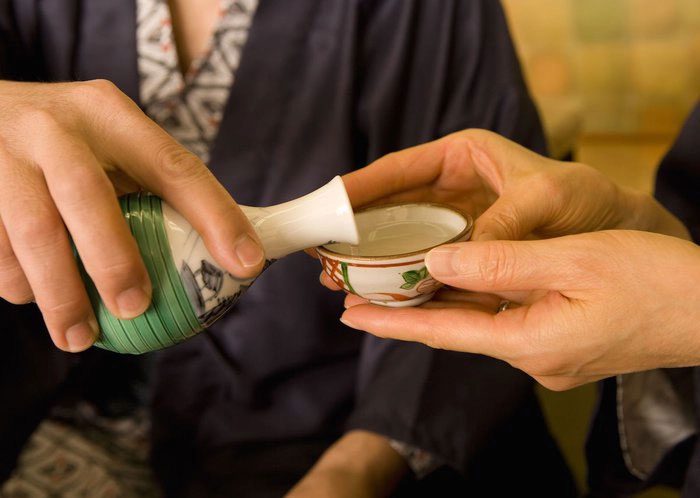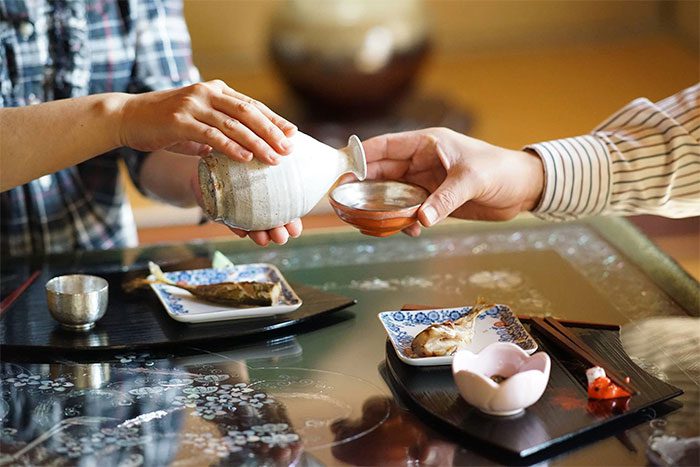There are many classic pairings between beverages and dishes in the culinary world. Beer and pizza, soju and Korean barbecue, wine and cheese… However, sake and sushi are not among those ideal combinations. While somewhere in the world there may be people who enjoy this pairing, in Japan it is not common.
Before pairing sake with food, it is important to have a correct understanding of this iconic Japanese alcoholic beverage. According to Vine Pair, contrary to popular belief, sake is not a wine. In fact, it is more similar to beer due to the way it is brewed. However, like wine, sake is very versatile and can accompany a variety of dishes, from fried fish to vegetable dishes, as noted by Sugoii Japan.

Sake is very versatile and can accompany a variety of dishes.
For example, tempura pairs well with floral sake, while the freshness of vegetables is enhanced when enjoyed with a fragrant and light sake. Salty ramen, with its rich flavors, is also quite delightful when paired with a bottle of sake.
That being said, sake pairs well with many types of food, not just Japanese cuisine – Josh Docak, owner of Cascadian-food, states. Docak expresses his appreciation for the lack of restrictive rules when pairing sake with food. Essentially, even raw fish goes very well with sake. Even desserts are no exception.
However, the crux of the issue with consuming sake with sushi is not the raw fish, but the rice. Sushi is essentially raw fish eaten with rice; without rice, it cannot be sushi. Since both rice and sake are made from rice, there arises the issue of “too much rice” when enjoying these two together.

The crux of the issue with consuming sake with sushi is the rice.

Using sake to cleanse the palate after sushi is ineffective due to its rice origin.
First, a beverage accompanying a dish has an important role in cleansing the palate to reset the taste buds for the next dish – a crucial task when enjoying a diverse meal like sushi. Since both originate from rice, using sake to cleanse the palate after sushi is ineffective.
Second, due to its brewing method similar to beer, sake has a relatively low alcohol content, resulting in less acidity compared to the vinegar rice served with sushi. For this reason, the flavor of sake does not enhance the taste of sushi; rather, it diminishes the sensory experience.
Finally, since sake contains a higher alcohol content than both beer and wine, its flavor is undoubtedly heavier than the two beverages, which can significantly influence the tasting experience.


















































